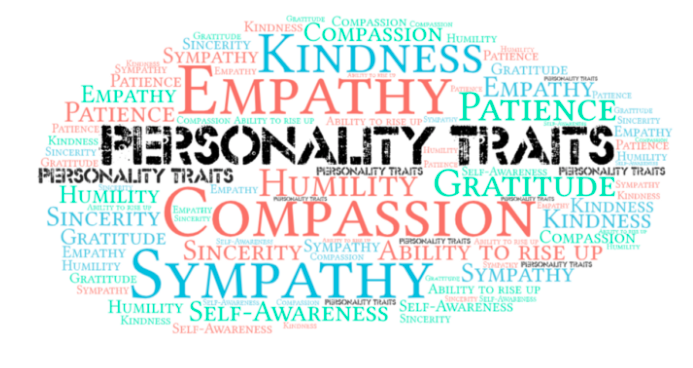Crisis Behavioural Traits

This is part one of a two part blog considering crisis behavioural traits and how they influence successful participation in crisis management. In this blog we consider traits in general and in the second we focus in on those traits that characterise effective crisis leadership.
Beyond direct health implications much has been said about the wider effects of the covid-19 pandemic upon those at greatest risk of severe illness and those most adversely impacted by the response to the pandemic. It is widely accepted that pressures and stresses resulting from a combination of virus anxiety and social restrictions have threatened mental health and wellbeing. Correspondingly there has been scrutiny of the individual behaviours these pressures and stresses have induced. The oft repeated mantra ‘we are all in it together’ has been somewhat exposed as people, with differing personalities, varied risk appetites and unique personal circumstances, display different behaviours, be they legal or illegal, morally permissible or against the grain of perceived wisdom. For example a recent study has found that under a quarter of people with covid-19 symptoms in the UK request a test and only 50% fully self-isolate. We now see more clearly than ever that how people behave when under stress has a direct bearing on the progress of a crisis. This tells us, if we needed reminding, that for organisations to hope to succeed when the worst occurs, they need to be sure that the right behaviours will be evident in their staff.
In our experience the degree of thought and energy given to honing individual behavioural traits so that people can be successful in times of crises may be low. This may stem from a lack of appreciation that the response to a crisis warrants a change in culture, including the values governing information sharing, decision taking, providing direction, allocating responsibilities and holding feet to the fire on delivering actions. The pre-crisis business norms, quite often predicated upon inclusion, engagement, persuasion and consensus, have to be adjusted in order to get ahead of events, otherwise failure looms large. The nature of crises, including a consequential sense of urgency, necessitates a more centralised, selective, directive and action orientated approach. This requires individuals to switch their normal patterns of behaviour to those required to participate successfully in crisis. Failing to do so leads to individual experiencing ‘shock’ and additonal pressures and stresses.
So how much attention is currently being placed on learning the crisis behavioural lessons from the pandemic? Well, the answer may be ‘not that much’. It’s interesting to note that the BCI’s ‘Coronavirus: A Pandemic Response’ report has not directly considered behaviours and how they benefited or frustrated crisis response, aside from oblique questions about leadership and organisational preparation. Neither has ‘The Future of Business Continuity and Resilience’ report directly considered this key area. What such surveys have highlighted is that close to 60% of organisations were unable to say that staff had been adequately prepared including through rehearsing a relevant response. If nothing there is clearly a degree of unease based on the pandemic experience regarding how people had been primed.
Don’t wait until the next crisis hits to discover that your people are not as prepared as you had expected or as you would desire. There are steps you can take now to strengthen crisis ready behavioural traits. Firstly, map the ‘as is’ way of doing business and the ‘to be’ approach optimum in crises, identifying how the culture will need to change and establish the general skills and traits required for specific roles. Encourage individuals to prepare by contrasting their own personality type and behavioural traits on a good day with the perception of their performance in a crisis when under pressure and stress. For example, someone most comfortable when able to be cautious, precise, deliberate, questioning and formal during business as usual may appear stuffy, indecisive, suspicious, cold or reserved in times of crisis. An individual normally competitive, demanding, determined, strong willed and purposeful might come across in a crisis as aggressive, controlling, driving, overbearing and intolerant. Using this level of self-awareness support individuals to explore adjusting their behaviours in a crisis to militate against any negative effects, emphasise the positives and be able to collaborate with others who bring complementary traits. Individuals can best be educated on what to expect in crisis and provided the opportunity to rehearse that transition through scenario based exercises that simulate the pressure and stresses likely to be experienced.
